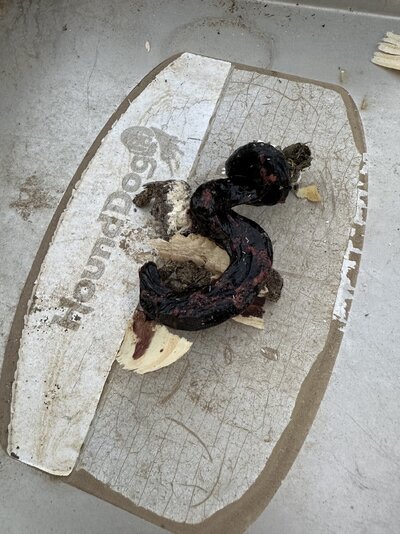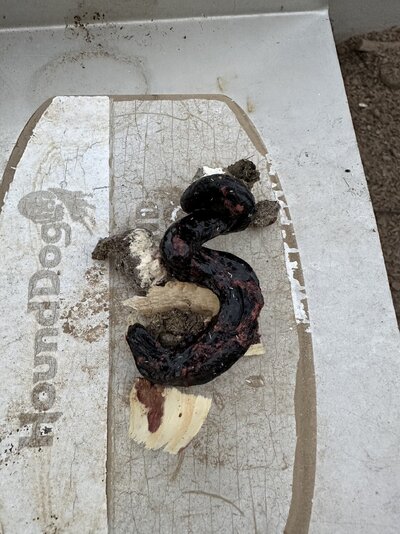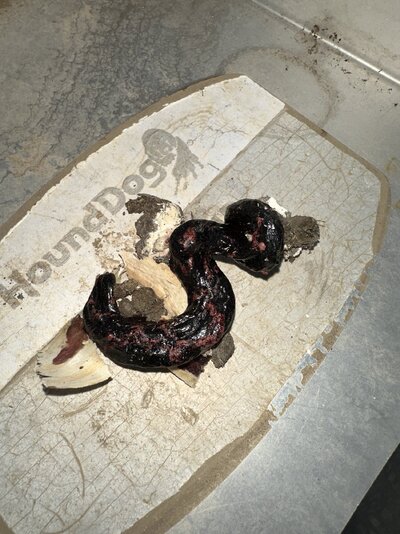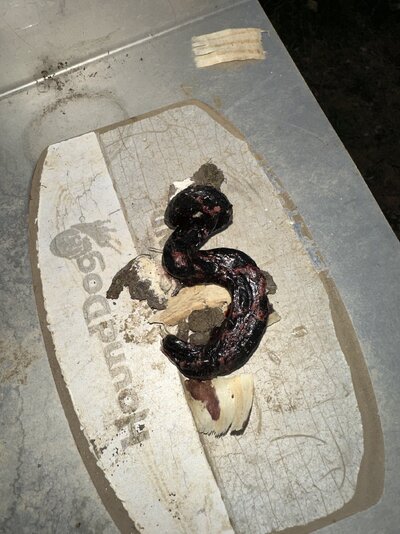yerawizard_Kristen
Songster
See photos. Found this in the coop bedding under the roosting bar last night. Cut it open and it’s soft but solid all the way through. Dark brownish red. About 2.5-3 inches. What the heck is this nasty thing!?
Everyone’s butts looked fine. Everyone is eating and drinking normally. It was under three of the girls: our barred rock, one of the buff orpingtons, and one of the black Australorps. Both the barred rock and the buff were sick within the last six weeks, seen by a vet, and treated. But I’m thinking it was one of them.
Some flock health history: Our barred rock was really pale and had lost weight about a month ago- took her to the vet and she had coccidosis. The whole flock was treated with Corid at that time for a week. Six weeks ago, one of our buff orpingtons was really weak and not eating/pooping and she had salpingitits and was on antibiotics for a month. She also was on a stimulant initially until her GI tract started working again for about three days.
More recently: The barred rock started looking pale again on Wednesday but we haven’t been able to get back into the vet yet, so we started another round of Corid just in case. The vet had said on the initial diagnosis that our barred rock might have a higher bacterial load or something than the others which is why she was symptomatic.
Both girls will be going back for follow ups next week, but I need some opinions on what the heck this thing is in the meantime and if you think it could be related to either of their recent illnesses.
Everyone’s butts looked fine. Everyone is eating and drinking normally. It was under three of the girls: our barred rock, one of the buff orpingtons, and one of the black Australorps. Both the barred rock and the buff were sick within the last six weeks, seen by a vet, and treated. But I’m thinking it was one of them.
Some flock health history: Our barred rock was really pale and had lost weight about a month ago- took her to the vet and she had coccidosis. The whole flock was treated with Corid at that time for a week. Six weeks ago, one of our buff orpingtons was really weak and not eating/pooping and she had salpingitits and was on antibiotics for a month. She also was on a stimulant initially until her GI tract started working again for about three days.
More recently: The barred rock started looking pale again on Wednesday but we haven’t been able to get back into the vet yet, so we started another round of Corid just in case. The vet had said on the initial diagnosis that our barred rock might have a higher bacterial load or something than the others which is why she was symptomatic.
Both girls will be going back for follow ups next week, but I need some opinions on what the heck this thing is in the meantime and if you think it could be related to either of their recent illnesses.








